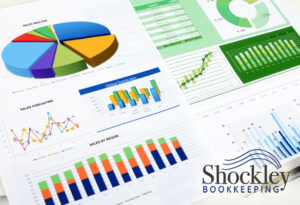It is not uncommon to hear people talk about bookkeepers and accountants as if they were the same profession. It’s understandable because these two financial specialists have similar goals, but they are not the same. Each one manages a different stage of a business’s financial cycle. They are both critical assets but with different functions. Learn more about what makes a bookkeeper and an accountant unique.
What are the Functions of a Bookkeeper?
A bookkeeper works on the front line to record daily transactions. Consistency and accurate recordkeeping are vital to a business’s financial health and that is what having a bookkeeper on hand provides.
Bookkeepers will:
- Keep a record of all financial transactions
- Manage a general ledger with post for debits and credits
- Produce invoices for accounts payable
- Balance subsidiaries
- Maintain historical accounts
- Complete payroll
One of the primary responsibilities of the bookkeeper is maintaining the general ledger. This is a record of all sale and expense receipts and the very heart of the business’s financial accounting system. Daily bookkeeping is often complex, especially for larger and intricate organizations. Keeping a true and accurate ledger along with supporting documentation is essential for financial accounting and an IRS requirement. Bookkeepers often have two to four years of vocational experience and/or an associate’s degree.
What are the Functions of an Accountant?
Accountants take previously compiled information and produce financial models from it. Accounting is a subjective process unlike the day to day work of the bookkeeper who manages the general ledger.
Accountants will:
- Make adjusting entries to record expenses not handled by the bookkeeper
- Prepare financial statements
- Analyze operational costs
- Prepare and process tax returns
- Help the business owner understand various business decisions and how they might impact the company
The accountant creates reports that specify financial indicators based on the needs of the business and the economy. The end goal is to provide the owner with a clear understand of the company’s financial health, profitability and cash flow. The accountant takes the information provided by the bookkeeper and develops a larger financial picture in order to create strategic plans for the company’s future and to manage their taxes. Accountants generally have at least a bachelor’s degree in either accounting or finance. They can also acquire professional certifications such as Certified Public Accountant.
It is the combination of bookkeeper and accountant that offers businesses the best chance at long-term financial success. With a detailed oriented bookkeeper and the financial forecasts provided by the accountant, companies are able to thrive and grow.

